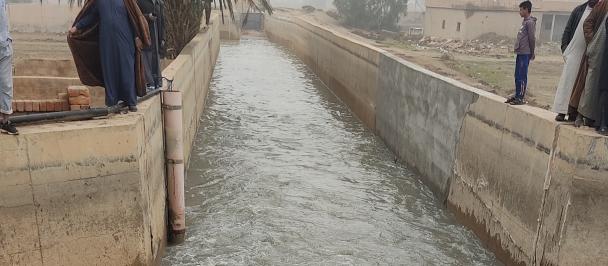Water as a Catalyst: Restoring Water for Livestock Breeders in Deir ez-Zor
June 1, 2023

Hamdan, a camel herder from Deir ez-Zor
Hamdan is an 18-year-old camel herder from the rural areas of Deir ez-Zor. He, along with other livestock breeders, has been suffering for the past years due to the lack of water in the area as a result of the damage caused by the war to irrigation systems. The shrinking of grazing grounds and water shortages led to a decrease in the number of camels in the area, and many herders had to sell some of what was left to provide for the remaining herd.
The United Nations Development Programme (UNDP) rehabilitated the Sector Seven pumping station in Deir ez-Zor, which allowed water to flow back to the area that had been afflicted by thirst for over ten years. This encouraged many farmers and livestock breeders to return to their villages, re-cultivate their land, feed their livestock and speed up breeding to bring their camels back from the brink of extension in that area.
"This project helped in watering the land and our herd. We are no longer forced to sell some of our livestock to buy water and food," Hamdan said. He is one of the 10,000 farming families who benefited from the restoration of the irrigation operation at the Sector Seven pumping station by UNDP in partnership with the Food and Agriculture Organization (FAO). Bringing water back to the area was an important driver to job creation and improved livelihoods of over 17,689 people in the eight villages targeted by the project. It enhanced food security in remote rural areas, created 4,500 seasonal farming job opportunities, and allowed increased returns.

a herd of camels in Deir ez-Zor
"This project helped in watering the land and our herd. We are no longer forced to sell some of our livestock to buy water and food"Hamdan, a camel herder from Deir ez-Zor

 Locations
Locations